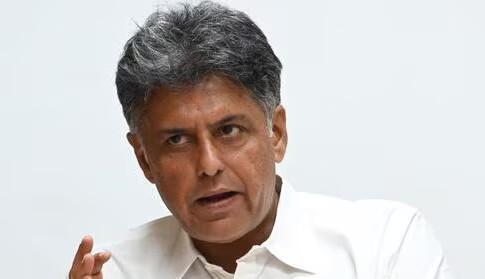
Against Constitution: Tewari on Bills to Remove Jailed PM, CMs
In a recent development, Union Minister Amit Shah presented three bills in Parliament aimed at removing Prime Ministers, Chief Ministers, and Ministers who are facing serious criminal charges. However, Congress MP Manish Tewari has strongly opposed these bills, terming them as “against the basic structure of Constitution”. In an exclusive interview, Tewari expressed his concerns over the potential misuse of state instrumentalities under these bills.
The three bills, which were introduced in the Lok Sabha, seek to amend the Constitution to allow for the removal of the Prime Minister, Chief Minister, and Ministers from office if they are facing serious criminal charges. The bills propose that the removal process will be initiated by the President or the Governor, as the case may be, on a recommendation from the Cabinet.
Tewari, who is a renowned constitutional expert, argued that the Indian Constitution is based on the principle of “innocent until proven guilty”. He emphasized that the proposed bills contradict this fundamental principle and undermine the basic structure of the Constitution.
“These bills are against the basic structure of the Constitution,” Tewari said. “The Indian Constitution says that one is innocent until proven guilty. These bills assume that a person is guilty until proven innocent. This is a fundamental shift in the way we approach the concept of justice.”
Tewari’s concerns are not unfounded. The proposed bills have the potential to create a climate of fear and persecution, where individuals may be targeted for political gain or to silence their opposition. The bills also raise serious questions about the role of the judiciary in the removal process.
Under the proposed bills, the removal process will be initiated by the President or the Governor, as the case may be, on a recommendation from the Cabinet. The matter will then be referred to a special committee, which will investigate the allegations and submit a report to the President or the Governor. The President or the Governor will then take a decision on the removal of the Prime Minister, Chief Minister, or Minister based on the report.
Tewari argued that this process is not in line with the principles of natural justice, which require that a person is given a fair hearing before being removed from office. He also expressed concern over the potential for misuse of state instrumentalities under these bills.
“The potential for misuse of state instrumentalities under these bills is enormous,” Tewari said. “Imagine a situation where the government uses its powers to target political opponents or silence its critics. This is a recipe for disaster and undermines the very fabric of our democracy.”
Tewari’s concerns are shared by several other opposition leaders, who have also criticized the proposed bills. The bills have been widely criticized for being overly broad and vague, and for creating a climate of fear and persecution.
In conclusion, the proposed bills to remove Prime Ministers, Chief Ministers, and Ministers who are facing serious criminal charges are a threat to the basic structure of the Constitution. They undermine the principle of “innocent until proven guilty” and create a climate of fear and persecution. The opposition to these bills is not only justified but also essential to protect the integrity of our democracy.






